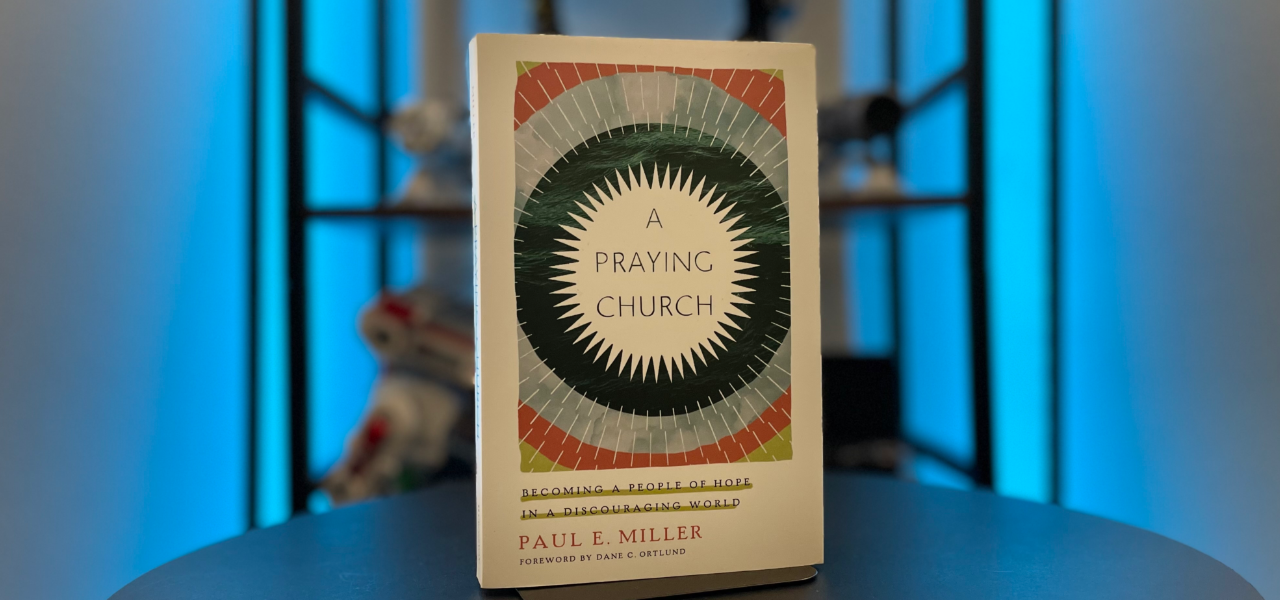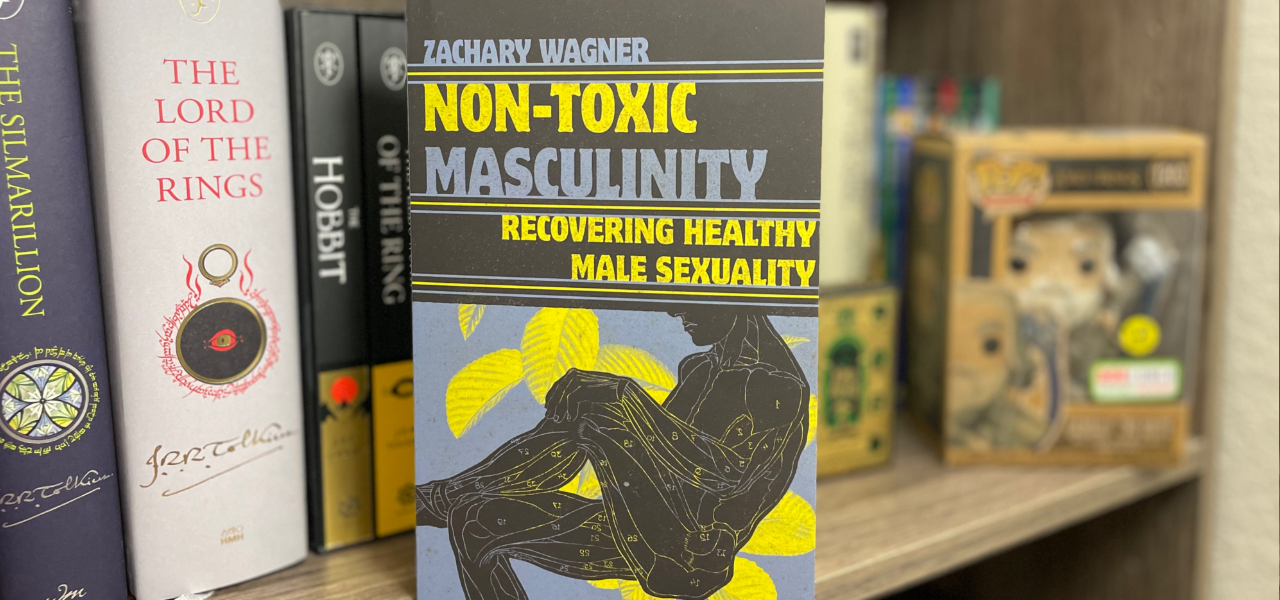What God Is Teaching Me From Psalm 16

Psalm 16 is probably my favorite Psalm. Truthfully, I could say that about a lot of them, but this one is just. So. Good. Recently it has meant a lot to me because God has used it to help me process much of what I am learning. In a lot of ways, my family is starting over. New city. New church. New friends. New jobs. This Psalm has been a constant friend. For the next few paragraphs I’d like to share some of what I’m learning. This won’t be an exhaustive verse by verse exposition of the Psalm, just a few thoughts about the work God is doing in my heart.
Most of the Psalms have a bit of introductory information that point us to the context of when it was written, but Psalm 16 just says a Miktam of David. While there is some dispute about what a Miktam is, most believe the word itself means “thing that covers or hides.”So it’s possible that David considered the truth he writes about as a covering for himself. I love that. As David seeks refuge, perhaps in a life and death situation, he views the truths in the Psalm as a place to hide. We can see this in verse 1 when David calls out to God to protect, or watch over, him.
And as he cries out to God he acknowledges that God is the source of all that is good.
Psalm 16:2
I said to the LORD, “You are my Lord;
I have nothing good besides you.”
The word good can also be translated as beauty or goodness. In David’s moment of need he reminds himself that God is the source of all that is good and beautiful. In David’s moment of need he cries out to God for refuge and realizes that God is the only one he needs. And as he recognizes God is the source of all the goodness in his life he looks around himself and finds delight in one of the good gifts that God has given him.
Psalm 16:3
As for the holy people who are in the land,
they are the noble ones.
All my delight is in them.
Because God is David’s refuge he delights in God’s people. David delights in being around others who also find God as their refuge. These are people who point David back to God. Now I know for some of us, myself included, there have been times when it’s been hard to find delight in the people of God. The people of God are the body of Christ. In God’s design, the Church is supposed to be his physical representative on earth.(1 Corinthians 12:27) This can be so beautiful when the Church operates the way God designed it to. But when a person experiences hurt or abuse in the church it becomes equally destructive. The very thing that was supposed to represent God’s grace and mercy in your life was the thing that brought devastation and pain.
So to those of us who have experienced this I want to remind us that we are not alone. Christ feels our pain. Remember, we are a part of his body. He cares about us. He cares about you. He cares about ALL of you. That means when you hurt, he hurts. That means when someone, even a religious leader, is the cause of your pain or abuse, Christ feels it. He even goes so far as to say it was done to him.(Acts 9:4) Church abuse is wicked and the affects are devastating. But I can tell you from personal experience, God is with you in your hurt and he has a people for you.
I’m so thankful that God has lead my family to a place where we can experience the delight in God’s people that David is writing about. I’m also incredibly thankful for dear friends who God has given us that we can continue to experience this with after our move. (Gabe, Katie, Kayla, and the rest of the Guyana team; serving with you did more for my soul than I can explain. Thank you.) But simply being able to sit in a church has been such a gift for me and my family these past several months. It’s helping me get back to the place where I can echo David’s words with complete authenticity. My delight is in God’s people.
Often times God manifests himself through his people. We need to be around people who delight in the Lord. It helps lift us and point us back to him. It also help us co-regulate. To help illustrate this think about a newborn baby for a moment.
When a baby is crying what do we do? We try to help! We pick up the baby and try to soothe them. We try to see what they need to help them calm down. The baby has a need that it can’t meet on their own, so we try to help regulate their emotions and meet their need. This process is called co-regulating. The baby cannot regulate their own emotions, so we adults help co-regulate them. If you are in my house, we will help you co-regulate with snacks. All our nieces and nephews know, Aunt Sarah has got all the good snacks. As adults, we don’t really grow out of this. While hopefully we can regularly regulate our emotions we still need to other to help us co-regulate.
I’m sure all of us have had the experience before when you are having a really off day, but you get around some good friends and it seems like their healthy emotions pulled you out of your negative state. Or perhaps in a more serious way, you were having a panic attack and you needed someone to help you breathe through it so you could calm down. Or perhaps you were just excited and you wanted to share it with someone! These are all examples of co-regulating.
In the last several years a ton of neuroscience has come out that has helped us understand this, but the reality is, long before we ever knew what a mirror neuron, or nervous system, or vagal nerve was, the Bible taught us that we need to each other to help do this.
1 Corinthians 12:26
So if one member suffers, all the members suffer with it; if one member is honored, all the members rejoice with it.
God has designed us to live in and need a healthy community of people. As David finds God is all he needs he delights in the people of God who are with him. And in the middle of his time of need - he finds God’s people to be a place of safety, help, and delight.
Then in verses 5-6 he uses words used to describe the land promised to Israel. Portion. Inheritance. Boundary lines.
Psalm 16:5-6
LORD, you are my portion
and my cup of blessing;
you hold my future.
The boundary lines have fallen for me
in pleasant places;
indeed, I have a beautiful inheritance.
And David’s point is that God himself is the true inheritance. David is describing the rich provision that he has found in God. Our future, our inheritance remains safe and secure because God has given us himself. My future, my inheritance remains safe and secure because God has given me himself. David is able to experience total security, even though he is in a situation that is causing him to cry out, because of who God is.
This is a beautiful reality. I love the quote It’s beauty that kills the raging beast of anxiety. In David’s moment of need he reminds himself of the beauty of God. And that regulates his soul. This is something that I have experienced in places like Yosemite, but I am learning to experience it no matter where I am. And if I am being honest, it is definitely not my regular experience. But David helps us understand how he comes to experience this in verses 7-8.
Psalm 16:7-8
I will bless the LORD who counsels me —
even at night when my thoughts trouble me.
I always let the LORD guide me.
Because he is at my right hand,
I will not be shaken.
As David continues to focus on the greatness and goodness of God we see this beautiful blend of acknowledging truth and then humble worship. I love verse 7 because it’s so relatable while also being incredibly helpful and instructive. Whatever David is crying out to God about is causing him to lose sleep. So clearly something serious is going on, but he is deliberately choosing to focus on the counsel of the Lord and bless God for giving him that counsel.
As this anxiety keeps him awake at night he is choosing to worship.
My friend Jennifer Holmes brought this thought up about this verse. (She actually helped me find a lot of words for what was in my heart about this passage. Thanks Jen!) She said…He is allowing two things to be true at the same time - he can have anxiety keep him awake at night AND still worship God for his goodness, his counsel, and his presence.
David is letting God be his guide in the midst of his difficulty. He is reminding himself that God is always with him. God’s goodness, God’s provision, God’s presence are always with me, no matter what I face in life.
We need to consistently fill our minds with who God reveal himself to be. It’s the presence of God that allows David to express trust and lift his heart in worship even though his anxiety is keeping him awake at night.
Because God is at David’s right hand, David says I will not be shaken.
I am learning that when I renew my minds with the reality that God is always with me he will bring me to a place of stability. I’m learning that takes time, but that God is not in a hurry. And boy am I thankful for that. It takes time for the body to let its guard down but that is okay, God is patient.
I am getting to a place where, like David, I can say with all authenticity I will not be shaken. But this doesn’t only affect his soul. It also affect David’s body.
Psalm 16:9
Therefore my heart is glad
and my whole being rejoices;
my body also rests securely.
As David begins to meditates on the goodness of God and recognizes God is always with him, his inner self begins to rejoice. His heart becomes glad. But then notice what happens at the end of verse 9. He says...
...my body also rests securely.
This inner work of God impacts every part of your body. The presence of God helps both our inner person and our outer being. God cares about your body. Because many of us have experienced hurt or abuse or have been deprived of the love and security that we need our bodies have learned to operate from a place of scarcity and stress, which makes it difficult to experience true connection, to other people and to God.
Stress and anxiety affect more than just your mind. They also affect your body. You may already know this, but a bit of understanding our brains can helps us make sense of this. Fear, stress, or anxiety starts in the part of our brain called the amygdala. This is the part of our brain that drives the “fight or flight” response and it controls our emotional reaction to something that stands out as a potential threat.
When activated it takes over the logic center of our brain (the hippocampus and prefrontal cortex.) As the amygdala starts pumping adrenaline, it heightens your senses, it makes you overly alert, because you may be in a situation that is dangerous and so it prepares your body to survive. God made us this way and it is good.
However, many of us have experienced abnormal levels of fear and anxiety which has lead to significant distress and dysfunction and disregulation.This is why many struggle with panic attacks, chest pain, headaches, or anxiety disorder.
Shortly before we moved to Yuma I was seeing a cardiologist because of chest pains I was having. I had several panic attacks, my constantly hurt, and I felt like I could never catch my breath. All due to stress and anxiety. When our bodies have been in fight or flight mode for so long we can’t regulate properly. We go into that state for survival but it keeps us from experiencing safety and rest.
However, over these last several months I am learning the way to help my body experience the type of security David is talking about is by walking with the good Shepherd whose presence changes everything. It took a drastic change. We had to move. But the move wasn’t the ultimate solution. It has allowed me to focus on what, or who, is the ultimate solution-The Good Shepherd.
I am learning that the good Shepherd delights to walk with his sheep back to the path of safety and security. And just like God intends for us to help co-regulate each other, the Holy Spirit will also help us co-regulate He is the BEST co-regulator I could ever have. He is the one who is my constant companion who will lead me to peace and safety in God. How does David get from "can’t sleep at night” to “resting securely? He reminds himself that God is at his right hand.
Think about, Jehovah, cares so deeply about us, that he will sit beside us so we can experience peace. When anxiety keeps us up at night, God is up with us. (And there are still a lot of those for me. I’m still learning to experience this.) He can bring us peace, security, and hope in the middle of our sleepless night.
This post is already to long. I said it wasn’t going to be a sermon and it turned into just that. But if you have read this far, you probably won’t mind a bit more. We can’t skip the last few verses. They are just to good.
Psalm 16:10-11
For you will not abandon me to Sheol;
you will not allow your faithful one to see decay.
You reveal the path of life to me;
in your presence is abundant joy;
at your right hand are eternal pleasures.
When we read Acts 2 we see that these verses here in Psalm 16:10 ultimately is talking about the resurrection of Jesus. (Peter quotes this Psalm in Acts 2:24-36.) Peter wanted his audience to know that David wasn’t talking about himself, he was talking about Jesus, the Messiah. And it’s this reality, the reality of the resurrected Messiah, that brought David so much hope that his whole being, body and soul, was able to get to a place of rejoicing. This is the reality that helped David focus on God when he was worried for his life. This is the reality that helped David rest in hope when he couldn’t sleep at night. This is the reality that the Holy Spirit brought to David’s mind to help him regulate his body when he felt overcome with anxiety.
And this reality changes everything for us as well.
The reality that the same Holy Spirit that raised Jesus from the dead lives inside of me (Romans 8:11) and will one day resurrect this physical body give me hope. When I let this reality shape and renew my mind it puts my anxiety into the perspective of eternity. It doesn’t dismiss our anxiety or difficulties as unimportant. But it does give us hope in them.
Psalm 16:11
You reveal the path of life to me;
in your presence is abundant joy;
at your right hand are eternal pleasures.




